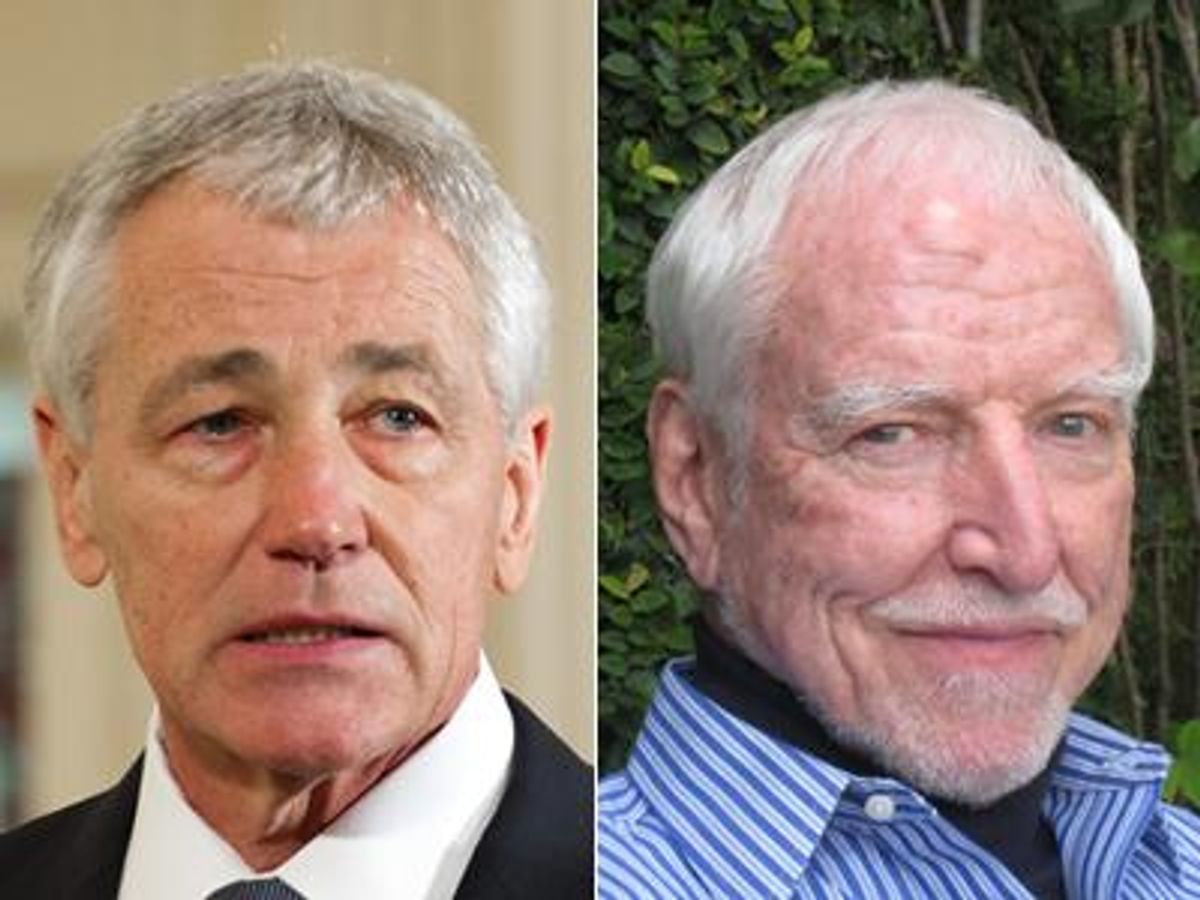
The nation's first openly gay ambassador, James Hormel, explains why he now supports the Senate confirmation of a man who helped block his own confirmation.
January 29 2013 4:30 AM EST
November 17 2015 5:28 AM EST
By continuing to use our site, you agree to our Private Policy and Terms of Use.

In 1997, when Chuck Hagel took his seat as a newly elected member of the United States Senate, our country was a less friendly place.
The U.S. Supreme Court ruling in Bowers v. Hardwick, which held that private, consensual homosexual acts violated sodomy laws, was still in effect. The malevolent "don't ask, don't tell" military regulations had been in force for three years. The so-called Defense of Marriage Act, a 20th-century variation on the Dred Scott case, had just been enacted by Congress and signed by President Clinton. Many states still applied criminal laws to homosexual acts.
What a difference 16 years can make! In 2003, Lawrence v. Texas overturned the Hardwick ruling and invalidated all state sodomy statutes. That same year, the Massachusetts Supreme Court acknowledged the right of same-sex couples to marry. In 2011, "don't ask, don't tell" was repealed.
Seldom regarded as social trendsetters, politicians have begun to move from recognition to action in addressing the verities of inequality, especially as they discover people within their constituencies (and sometimes, their own families) who are treated by the law as second-class citizens.
Regarding his swing vote in the 5-to-4 decision of Bowers v. Hardwick, retired justice Lewis Powell said in 1990, "I think I made a mistake in the Hardwick case." President Clinton now supports the repeal of DOMA. He also became an opponent of "don't ask, don't tell," along with top military leaders who initially favored its onerous strictures.
Polls indicate for the first time that a majority of Americans approve of same-sex marriage, which is now legal in nine states and the District of Columbia. In his second inaugural address, President Barack Obama took great care to include LGBT issues within the panoply of civil rights struggles with his reference to "Seneca Falls, Selma, and Stonewall" and his call for the freedom to marry.
In other words, times and minds have changed.
Hagel has taken stock of his own past comments. Regarding disparaging remarks he made about me in an Omaha World-Herald interview, at the time I sought Senate confirmation to become America's first openly gay ambassador, he issued an apology. "My comments 14 years ago in 1998 were insensitive," he said. "They do not reflect my views." He added, "I am fully supportive of 'open service' and committed to LGBT military families." He subsequently elaborated on his support for LGBT equality and for amending the applicable military regulations and benefits for families.
On Thursday, at the Senate confirmation hearing on Hagel's nomination as secretary of Defense, he will have ample opportunity to answer questions on his qualifications and views. The hawks and doves will raise concerns about his positions on military engagement and the desirability and cost of maintaining superior readiness to protect our sovereignty and oppose aggression.
Amid that discussion, he will need to state clearly his willingness to achieve full equality for all Americans regardless of sexual orientation or identity. If he responds as I anticipate, he will be confirmed and will serve with the same valor that made him a war combat hero. Ultimately, of course, he will represent the president of the United States in dealing with every aspect of his job, including equal treatment for all members of the Armed Services and their families.
And the president has spoken.
JAMES HORMEL is a former U.S. ambassador to Luxembourg, serving during the Clinton adminstration.
Viral post saying Republicans 'have two daddies now' has MAGA hot and bothered